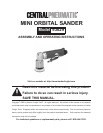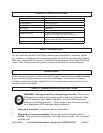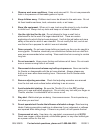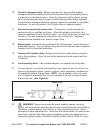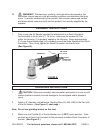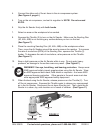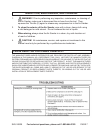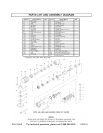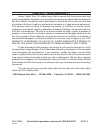
SKU 93629 For technical questions, please call 1-800-444-3353 PAGE 4
17. Replacement parts and accessories. This product is to be repaired and
servicedonlybyaqualiedtechnician.Whenthisproductisserviced,only
identical replacement parts should be used. Use of any other parts will void the
warranty. Only use accessories intended for use with this tool. Approved
accessories are available from Harbor Freight Tools.
18. Maintenance. The maintenance outlined in the “Maintenance” section should be
performed regularly. For your safety, this product should be serviced or repaired
regularlyonlybyaqualiedtechnician.
16. Check for damaged parts. Before using any tool, any part that appears
damaged should be carefully checked to determine that it will operate properly
and perform its intended function. Check for alignment and binding of moving
parts, any broken parts, and any other condition that may affect proper operation.
Anypartthatisdamagedshouldbeproperlyrepairedorreplacedbyaqualied
technician. Do not use the tool if the Throttle does not operate properly.
19. Transport Air Sander safely. Always disconnect air supply when moving the
tool in the workplace. Carry the tool by the handle and avoid contact with the
Throttle (2).
20. Avoid working alone. If an accident happens, an assistant can bring help.
21. Forbestservice,youshouldincorporateanoiler,regulator,andin-linelter,as
showninthediagrambelow.Hoses,couplers,oilers,regulators,andltersare
all available at Harbor Freight Tools. NOTE: If an automatic oiler is not used,
put 3-5 drops of pneumatic Tool Oil (not included) in the tool’s quick connector
before each use. (See Figure A.)
REGULATOR
FILTER
FIGURE A
OILER
22. WARNING! Some dust created by power sanding, sawing, grinding,
drilling, and other construction activities contain chemicals known (to the State of
California) to cause cancer, birth defects, or other reproductive harm. Some
examples of these chemicals are: Lead from lead-based paints, crystalline silica
from bricks, cement, and other masonry products, arsenic and chromium from
chemically treated lumber. (California Health & Safety Code § 25249.5, et seq.)



